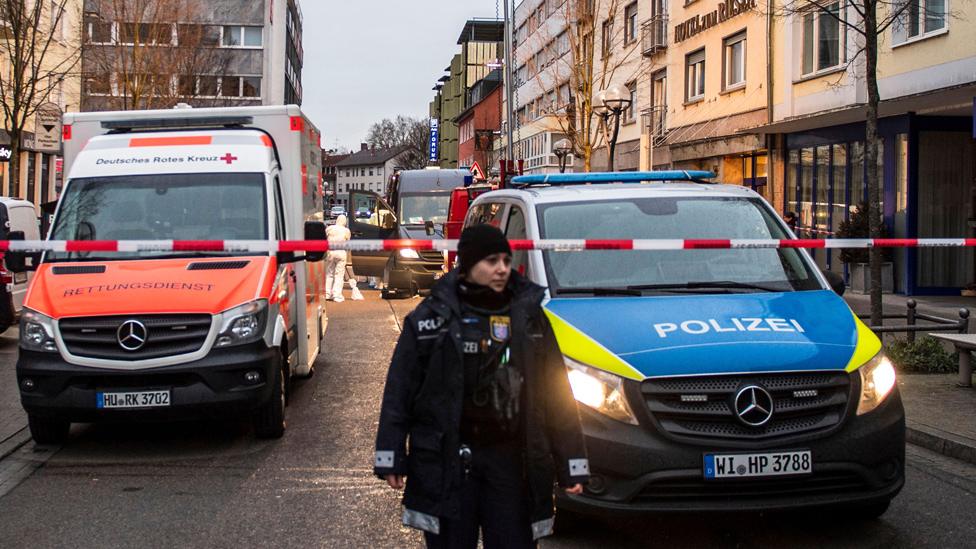German shock at neo-Nazi burial in empty Jewish grave
- Published
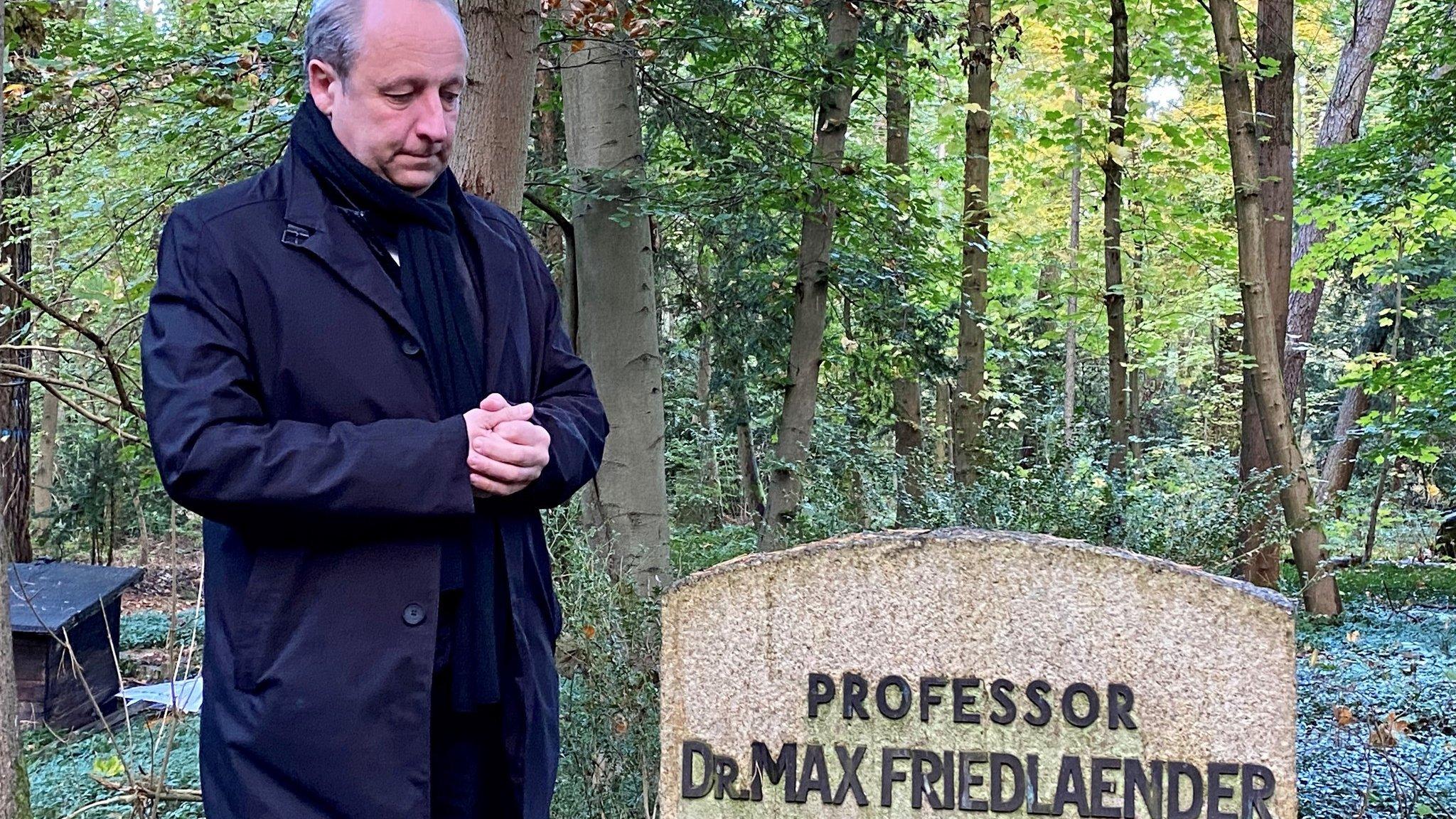
Bishop Christian Stäblein broke off his holiday to visit the grave and issue a statement, the Church said
Germany's Protestant Church and other authorities have condemned the reuse of the vacant burial plot of a Jewish music professor for a neo-Nazi.
The remains of Prof Max Friedlaender were moved to another site in 1980, but a tombstone still commemorates him at the cemetery outside Berlin.
A Holocaust denier was buried there on Friday after the grave's reuse was approved.
The local bishop called it "a terrible mistake".
Bishop Christian Stäblein visited the site on Tuesday.
The burial plot is in one of Germany's largest Protestant cemeteries, in Stahnsdorf near Potsdam.
Prof Friedlaender, who died in 1934, was from a Jewish family but was a member of the Protestant Church. He was a bass singer and musicologist who specialised in the songs of Franz Schubert.
German media report that Henry Hafenmayer, the man now buried in the plot in Stahnsdorf, was a Holocaust denier and blogger linked to several neo-Nazi groups.
Neo-Nazi supporters laid wreaths on the grave, with nationalist messages and ribbons adorned with the Nazi-era iron cross symbol. They placed a portrait of Hafenmayer in front of Prof Friedlaender's shrouded tombstone.
The memorial was covered by the cemetery officials as is usual practice when a grave site is reused, the Church said.
Among the mourners was Horst Mahler, a neo-Nazi who has spent years in jail for racist incitement, German media report.
In an apologetic statement, external, Bishop Stäblein said the burial was "a terrible mistake and shocking occurrence, in view of our history". The bishop, who leads the Church in that part of Germany, said "we must immediately see whether and what we can undo".
Pictures of the funeral, external were posted on Flickr by RechercheNetzwerk.Berlin, an organisation campaigning against anti-Semitism.
The organisation says Hafenmayer published anti-Semitic propaganda on his blog, called "End of the Lie", and glorified Nazism.
The Church said that Hafenmayer's representative had originally requested a more central burial plot, which had been refused by the cemetery authorities as there were many Jewish graves in that area.
The selection of Prof Friedlaender's former plot appears not to have been turned down because the cemetery records recorded him as Protestant.
Police and officers from the department of state protection were present at the funeral, the Church said, and the cemetery authorities were aware of the dead man's neo-Nazi links.
The president of the Central Council of Jews in Germany said that he was shocked at what had happened.
Josef Schuster said it was unbearable that right-wing extremists should "haunt" the grave of Prof Friedlaender, and in doing so they had desecrated his memory.
The Protestant Church itself had approved Hafenmayer's being given a plot (though not this specific one) despite his neo-Nazi connections, on the principle that everyone had the right to a final resting place, it said, but there were no Protestant ministers at the ceremony.
Jewish graves and Holocaust memorials have been vandalised previously by neo-Nazis in Germany and elsewhere in Europe.
The Berlin official in charge of combating anti-Semitism, Samuel Salzborn, has launched a legal action against the mourners for allegedly disturbing the peace of the dead and for racial incitement.
Related topics
- Published7 May 2021
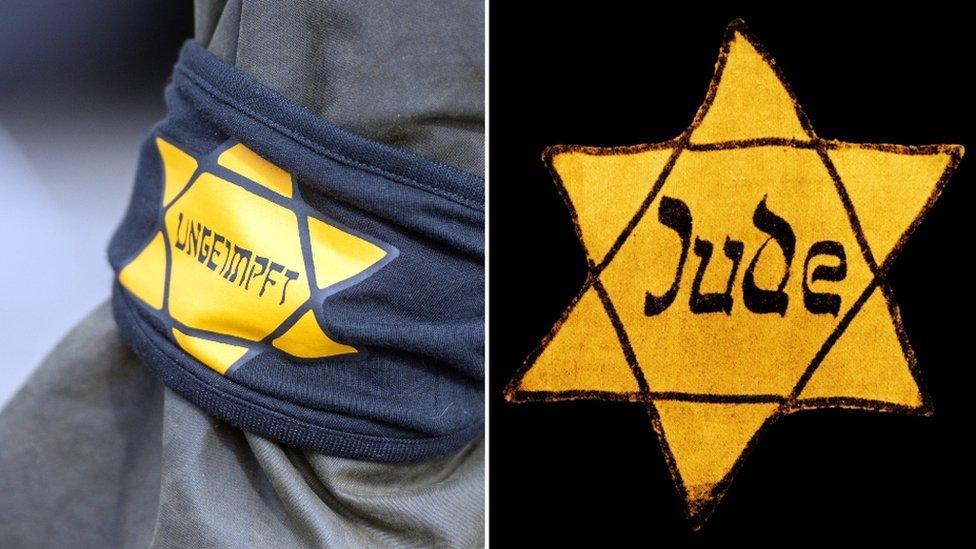
- Published27 January
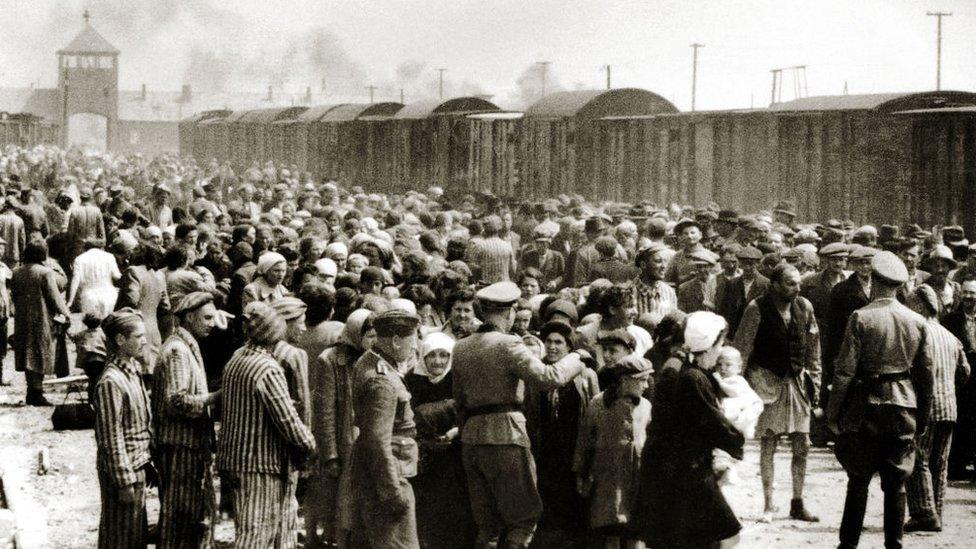
- Published13 April 2021
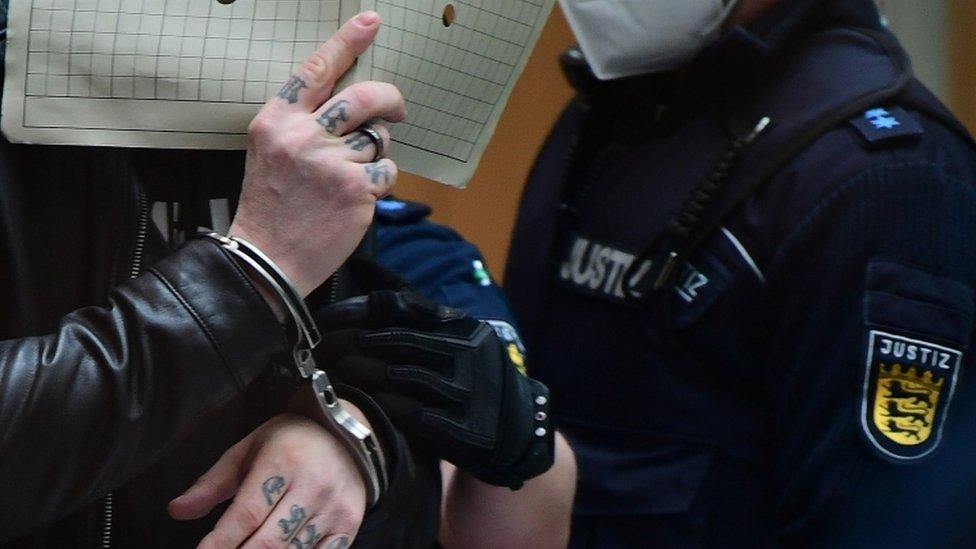
- Published21 December 2020
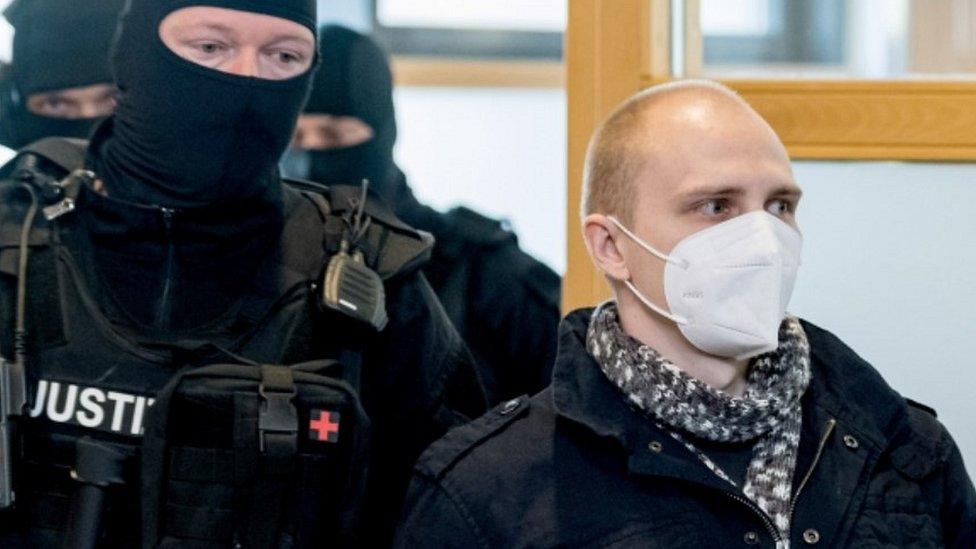
- Published20 February 2020
